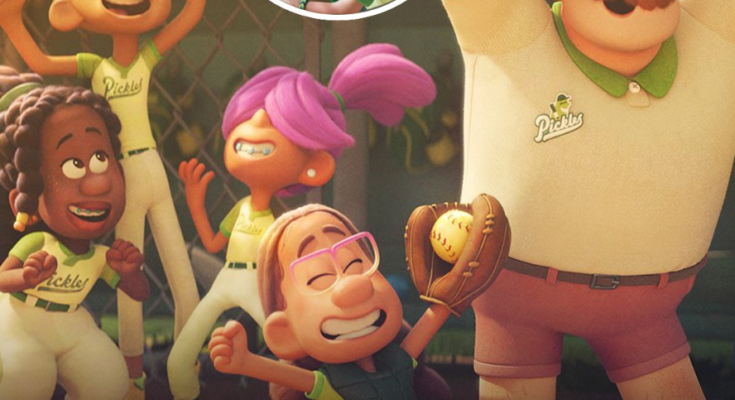Disney has decided to remove a transgender storyline from its upcoming animated series prior to the show’s release.
The series, produced by Disney-owned Pixar, follows the journey of a co-ed middle school softball team, the Pickles, as they prepare for their championship game.
Each of the series’ eight episodes, debuting on Disney+ on February 19, will focus on a different member of the team.
While the character originally involved in the gender identity storyline will remain part of the show, the plot addressing this topic has been removed, according to a source familiar with the production.
This change was reportedly made months ago, despite the character’s dialogue already having been recorded.

In a statement addressing the decision, Disney said, per CNN: “When it comes to animated content for a younger audience, we recognize that many parents would prefer to discuss certain subjects with their children on their own terms and timeline.”
The decision has sparked speculation about Disney’s motives, especially in the context of the recent reelection of former President Donald Trump.
Known for his vocal opposition to diversity, equity, and inclusion (DEI) initiatives, Trump’s return to the political spotlight has coincided with broader shifts among corporations reevaluating their DEI strategies.
Asked whether the removal of the storyline might indicate Disney’s effort to distance itself from diversity initiatives, the company declined to comment, per The Hollywood Reporter.
Disney CEO Bob Iger has previously emphasized that the company’s primary objective is to entertain rather than deliver social messages.
Speaking to CNBC earlier this year, Iger stated: “The term ‘woke’ is thrown around rather liberally. I think a lot of people don’t even understand really what it means. The bottom line is that infusing messaging as a sort of number one priority in our films and TV shows is not what we’re up to. They need to be entertaining.”

Public reactions to Disney’s latest move to remove the trans storyline from Win or Lose have been divided.
Supporters of the decision argue that sensitive topics should be left to parents to address with their children.
“As a parent, I’m grateful Disney is respecting our role in guiding our kids,” commented one social media user.
Others, however, view the removal as a capitulation to political pressures.
“Disney is caving to a loud minority and abandoning the very inclusivity it claims to champion,” criticized another.
Critics also expressed disappointment at what they perceive as a step backward for representation.
One commenter wrote: “This sends a message that trans stories aren’t worth telling, even in a nuanced way.”
Meanwhile, others speculated about the impact on the creators.
“Imagine the artists and writers who poured their hearts into that storyline only to see it erased,” said a Pixar fan.

This is not the first time Disney’s approach to LGBTQ representation has faced controversy.
The 2022 Toy Story prequel, Lightyear, included a same-sex kiss in its storyline but initially faced internal pushback before the scene was restored.
The film faced bans in over a dozen countries and criticism from conservative groups.
Additionally, Disney has showcased LGBTQ representation in adult-focused content, such as FX’s Pose and Marvel’s Agatha: Coven of Chaos.
However, Florida’s controversial ‘Don’t Say Gay’ law in 2022 drew Disney into a heated political battle, with the company’s response to the legislation fueling backlash from conservative media.
As Disney navigates these challenges, its leadership continues to reiterate a focus on entertainment over messaging.
“When I came back, what I’ve really tried to do is to return to our roots — which is, remember, we have to entertain first: it’s not about messages,” Iger said during last year’s DealBook Summit.
Despite these assurances, the decision to remove the storyline has reignited debates about the balance between inclusivity and entertainment, leaving many to question what the future holds for representation in mainstream media.



